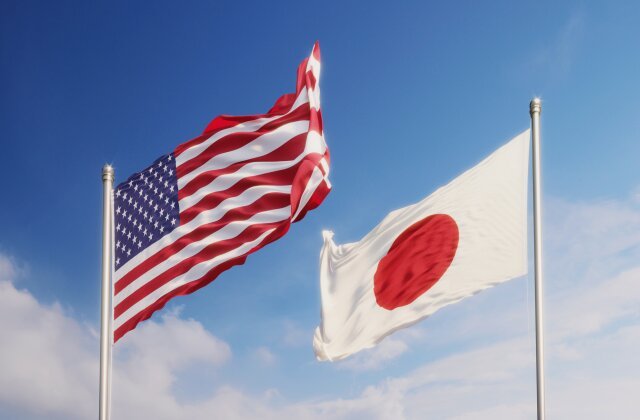Staff Reporter
Almost half of Japanese CEOs are gearing up to invest more in the United States, according to a recent survey, even as concerns linger over President Trump’s tariff policies.
The Nikkei news agency polled 144 major Japanese corporations, revealing that 28.3% of executives intend to enhance their operations in the U.S., while an additional 20.5% are considering similar expansions. Notably, 0.8% of those without existing U.S. operations expressed plans to enter the market.
None of the companies surveyed indicated intentions to reduce their current operations in the U.S. More than half, or 50.8%, cited increasing production capacity as their primary motivation, while 47.6% pointed to a desire for mergers and acquisitions. Additionally, 34.9% showed interest in investing in startups.
The survey was conducted between February 28 and March 19, prior to President Trump’s announcement that the U.S. will impose tariffs of up to 25% on automotive imports.
Trump views these tariffs as a means to generate revenue to support his promised tax cuts and revitalize the struggling U.S. industrial sector. The new import taxes are set to take effect on April 2, coinciding with planned reciprocal tariffs aimed at countries contributing significantly to the U.S. trade deficit.
The Nikkei poll found that about three-quarters of respondents are actively seeking opportunities for growth and expansion. Industries particularly eager to expand in the U.S. include electrical equipment, food, machinery, and materials.
Several Japanese firms are moving forward with concrete plans for expansion in the United States. Nissin Foods Holdings is set to open its first instant-noodle manufacturing facility in the U.S. in nearly 50 years, with operations scheduled to begin in August.
Meanwhile, Sumitomo Chemical plans to establish a new U.S. plant for producing cleaning solvents specifically for semiconductor manufacturing.
The Japanese government, under Prime Minister Shigeru Ishiba, is backing these investment trends, committing to boost Japan’s total investments in the U.S. to around $1 trillion. As a result, 41.4% of executives surveyed indicated plans to either increase current investments or launch new ones in the U.S., a significant rise from just 16.9% in a previous survey conducted in December.
Yutaka Kyoya, president of Mitsubishi Shokuhin, a major Japanese food wholesaler, expressed optimism about government support, advocating for “tax breaks to encourage direct investment in the U.S.”
However, enthusiasm for expansion is tempered by serious concerns over the Trump administration’s proposed tariffs, particularly following recent duties on steel and aluminum imports that could significantly raise operational costs. Policy uncertainty regarding tariffs emerged as the top concern for 73% of executives surveyed.
“Given the need to curb inflation ahead of the midterm elections, it’s unclear how much they will continue to raise tariffs,” said Takeshi Niinami, chairman of Suntory Holdings.
Nearly half of the manufacturing respondents remain cautious, opting to maintain current operations or take a wait-and-see approach regarding tariffs. Additional worries include skyrocketing labor costs, which may lead some firms to reconsider their investments altogether.
“There will likely be companies that withdraw from plans because the rising labor costs in the U.S. make it unfeasible,” noted Hideo Kumano, chief economist at Dai-ichi Life Research Institute.

